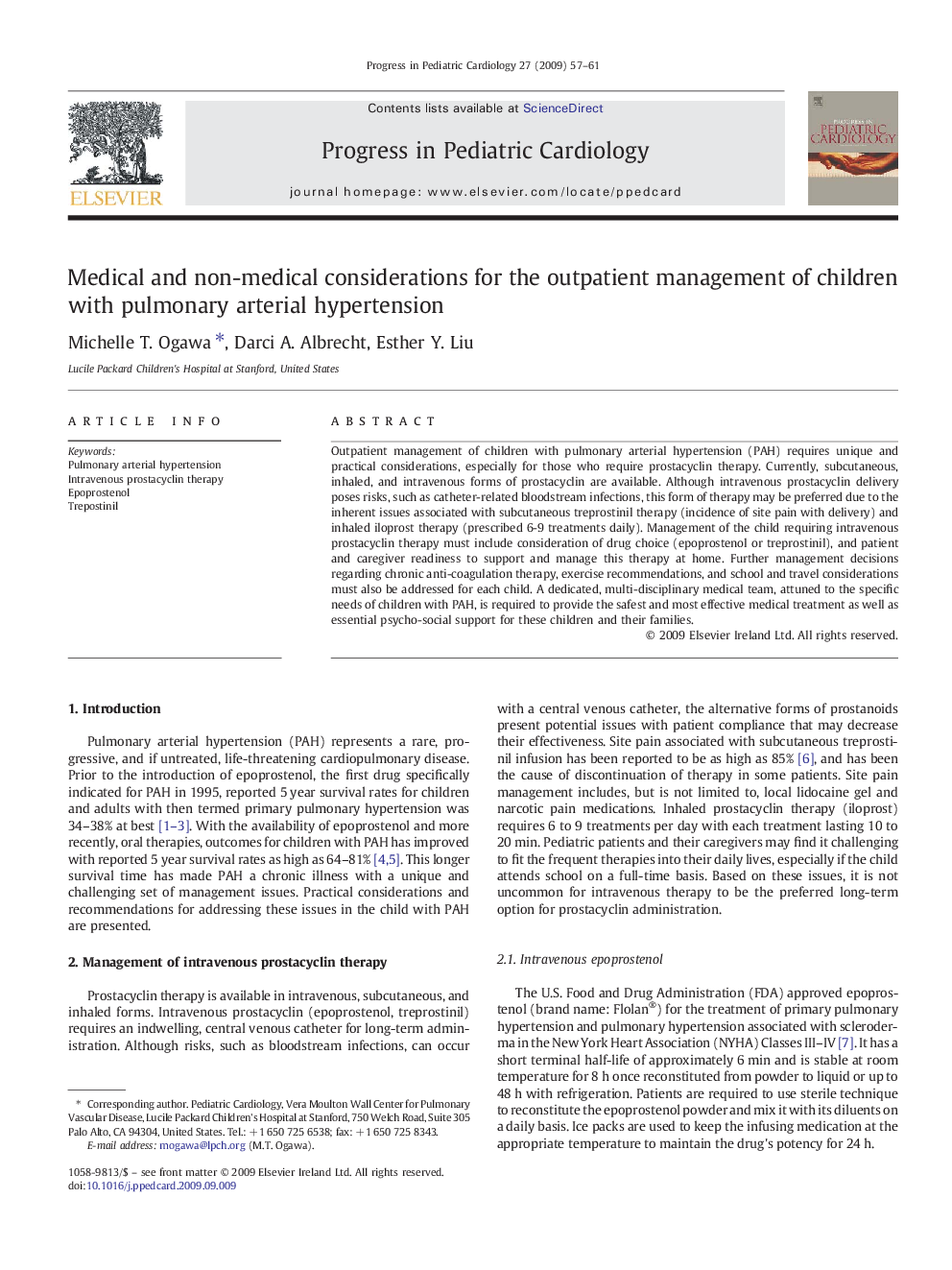| Article ID | Journal | Published Year | Pages | File Type |
|---|---|---|---|---|
| 3007609 | Progress in Pediatric Cardiology | 2009 | 5 Pages |
Outpatient management of children with pulmonary arterial hypertension (PAH) requires unique and practical considerations, especially for those who require prostacyclin therapy. Currently, subcutaneous, inhaled, and intravenous forms of prostacyclin are available. Although intravenous prostacyclin delivery poses risks, such as catheter-related bloodstream infections, this form of therapy may be preferred due to the inherent issues associated with subcutaneous treprostinil therapy (incidence of site pain with delivery) and inhaled iloprost therapy (prescribed 6-9 treatments daily). Management of the child requiring intravenous prostacyclin therapy must include consideration of drug choice (epoprostenol or treprostinil), and patient and caregiver readiness to support and manage this therapy at home. Further management decisions regarding chronic anti-coagulation therapy, exercise recommendations, and school and travel considerations must also be addressed for each child. A dedicated, multi-disciplinary medical team, attuned to the specific needs of children with PAH, is required to provide the safest and most effective medical treatment as well as essential psycho-social support for these children and their families.
